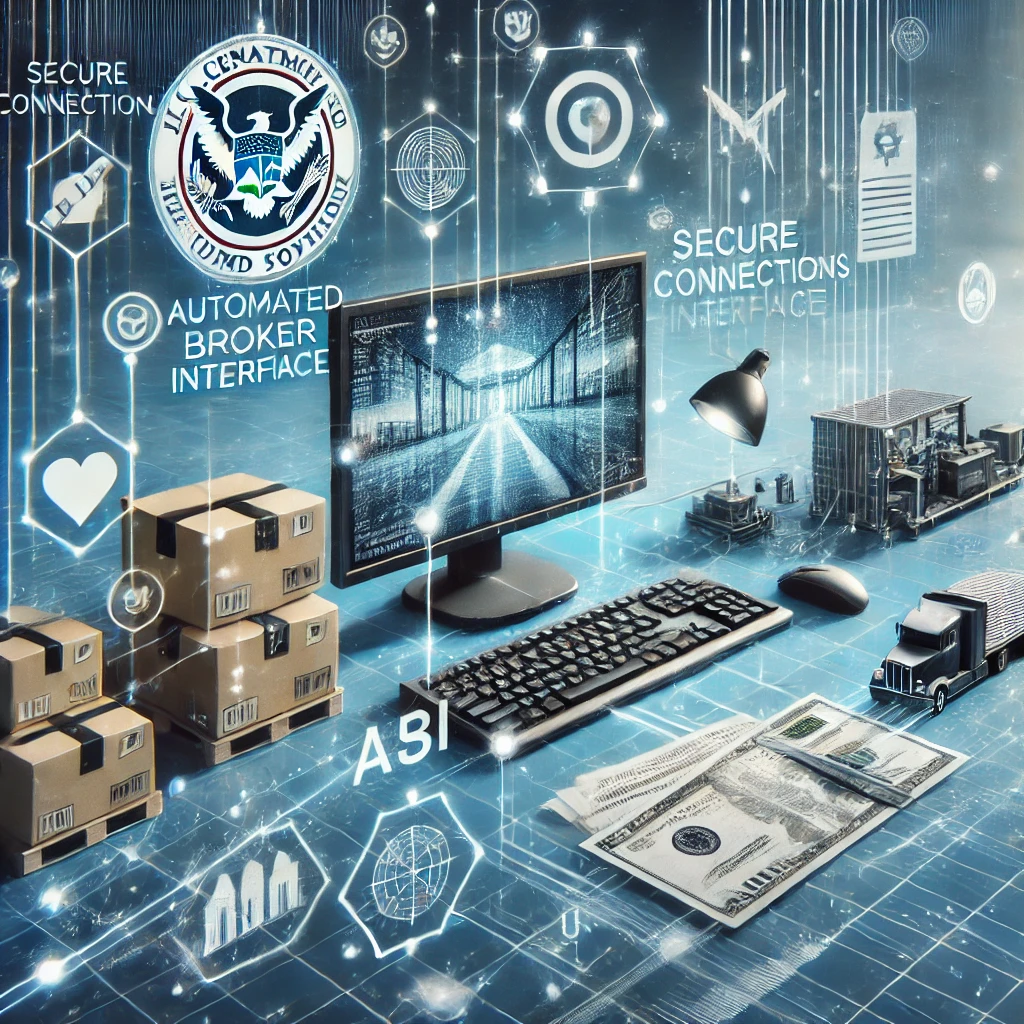Automated Broker Interface (ABI): Streamlining Customs Processes in International Trade

Key Takeaways:
- ABI is a crucial system for facilitating communication between customs brokers and U.S. Customs and Border Protection (CBP)
- It streamlines the customs clearance process for international shipments
- ABI software and systems are essential tools for customs brokers and importers
- Understanding ABI is vital for efficient international trade operations
What is the Interface (ABI)?
The Automated Broker Interface, commonly known as ABI, is an electronic system that allows customs brokers, importers, and other authorized filers to transmit import data directly to U.S. Customs and Border Protection (CBP). It’s a key component of the Automated Commercial Environment (ACE) system used by CBP to manage the flow of goods across U.S. borders.
Key features of ABI include:
- Electronic submission of entry summaries
- Real-time communication with CBP
- Automated calculation of duties and fees
- Faster processing of customs clearance
The Role of Automated Brokers in International Trade
Automated brokers, leveraging ABI systems, play a critical role in facilitating international trade:
- Data Transmission: They electronically submit required customs documentation.
- Compliance Assurance: They ensure that all submissions comply with CBP regulations.
- Error Reduction: Automated processes minimize human errors in customs declarations.
- Efficiency: They speed up the customs clearance process, reducing delays in shipments.
- Cost Reduction: By streamlining processes, they can help reduce overall customs clearance costs.

ABI Software: Features and Functionality
ABI software is the tool that customs brokers and importers use to interface with the CBP’s ABI system. Key features automated broker typically include:
- Entry Management: Creation and submission of customs entries
- Document Generation: Automated production of required customs documents
- Tariff Database: Access to up-to-date tariff information
- Compliance Checks: Built-in checks to ensure regulatory compliance
- Integration Capabilities: Ability to integrate with other logistics and supply chain systems
- Reporting Tools: Generation of various reports for business intelligence
When considering ABI software, it’s important to evaluate these features along with factors like user-friendliness, customer support, and cost.
ABI vs. API: Understanding the Difference
In the world of software integration, ABI (Application Binary Interface) and API (Application Programming Interface) are often compared:
- ABI (Application Binary Interface):
- Defines how software components interact at the binary level
- Concerned with low-level details like calling conventions and data structure layout
- Changes in ABI can break compatibility between compiled binaries
- API (Application Programming Interface):
- Defines how software components should interact at the source code level
- Specifies what functions or methods are available, their parameters, and return values
- Changes in API may require code modifications but not necessarily recompilation
In the context of customs brokerage, “ABI” typically refers to the Automated Broker Interface, not the Application Binary Interface.
ABI Systems: Implementation and Integration
Implementing an ABI system involves several steps:
- Software Selection: Choose an ABI software that meets your specific needs.
- Hardware Setup: Ensure you have the necessary computing infrastructure.
- Training: Provide comprehensive training to staff who will use the system.
- Integration: Connect the ABI system with your existing logistics and accounting software.
- Testing: Thoroughly test the system before going live.
- Certification: Obtain necessary certifications from CBP to use the ABI system.
Integration with other systems is crucial for maximizing the benefits of ABI. This may include connections to:
- Warehouse Management Systems (WMS)
- Transportation Management Systems (TMS)
- Enterprise Resource Planning (ERP) systems

ABI in Customs Logistics
In the realm of customs logistics, ABI plays a pivotal role:
- Pre-arrival Processing: ABI allows for submission of entry data before goods arrive, speeding up clearance.
- Risk Assessment: CBP uses ABI data to assess shipment risk, potentially reducing physical inspections.
- Duty and Fee Calculation: Automated calculation ensures accuracy and reduces disputes.
- Status Updates: Real-time updates on entry status help in logistics planning.
- Documentation: Electronic storage and retrieval of customs documents improve record-keeping.

The Future of ABI: Trends and Innovations
As technology evolves, so does the ABI system and related technologies automated broker:
- Cloud-based Solutions: Increasing move towards cloud-based ABI software for better accessibility and scalability.
- AI and Machine Learning: Implementation of AI for improved data analysis and predictive capabilities.
- Blockchain Integration: Potential use of blockchain for enhanced security and transparency in customs processes.
- Mobile Access: Development of mobile applications for on-the-go access to ABI systems.
- Global Standardization: Efforts towards creating more standardized systems across different countries.
Choosing the Right ABI Solution for Your Business
When selecting an ABI solution, consider the following factors:
- Scalability: Ensure the system can grow with your business needs.
- Compliance Updates: Look for software that regularly updates to comply with changing regulations.
- User Interface: An intuitive interface can significantly improve efficiency.
- Support and Training: Adequate support and training are crucial for successful implementation.
- Cost: Consider both initial implementation costs and ongoing fees.
- Integration Capabilities: Ensure compatibility with your existing systems.
- Customization Options: Look for solutions that can be tailored to your specific needs.

Conclusion: The Critical Role of ABI in Modern Customs Brokerage
The Automated Broker Interface (ABI) has revolutionized the way customs brokers and importers interact with customs authorities. By automating and streamlining the customs clearance process, ABI significantly reduces errors, speeds up processing times, and improves overall efficiency in international trade operations.
As global trade continues to grow in complexity and volume, the importance of robust ABI systems and software cannot be automated broker overstated. Whether you’re a customs broker, importer, or logistics professional, understanding and leveraging ABI technology is crucial for staying competitive in the international marketplace.
The future of ABI looks promising, with ongoing innovations set to further enhance its capabilities. As we move forward, we can expect to see even more integration between ABI and other cutting-edge technologies, leading to smoother, faster, and more transparent customs processes.
For businesses involved in international trade, investing in quality ABI solutions and staying informed about developments in this field is not just beneficial—it’s essential for long-term success in the global marketplace.
